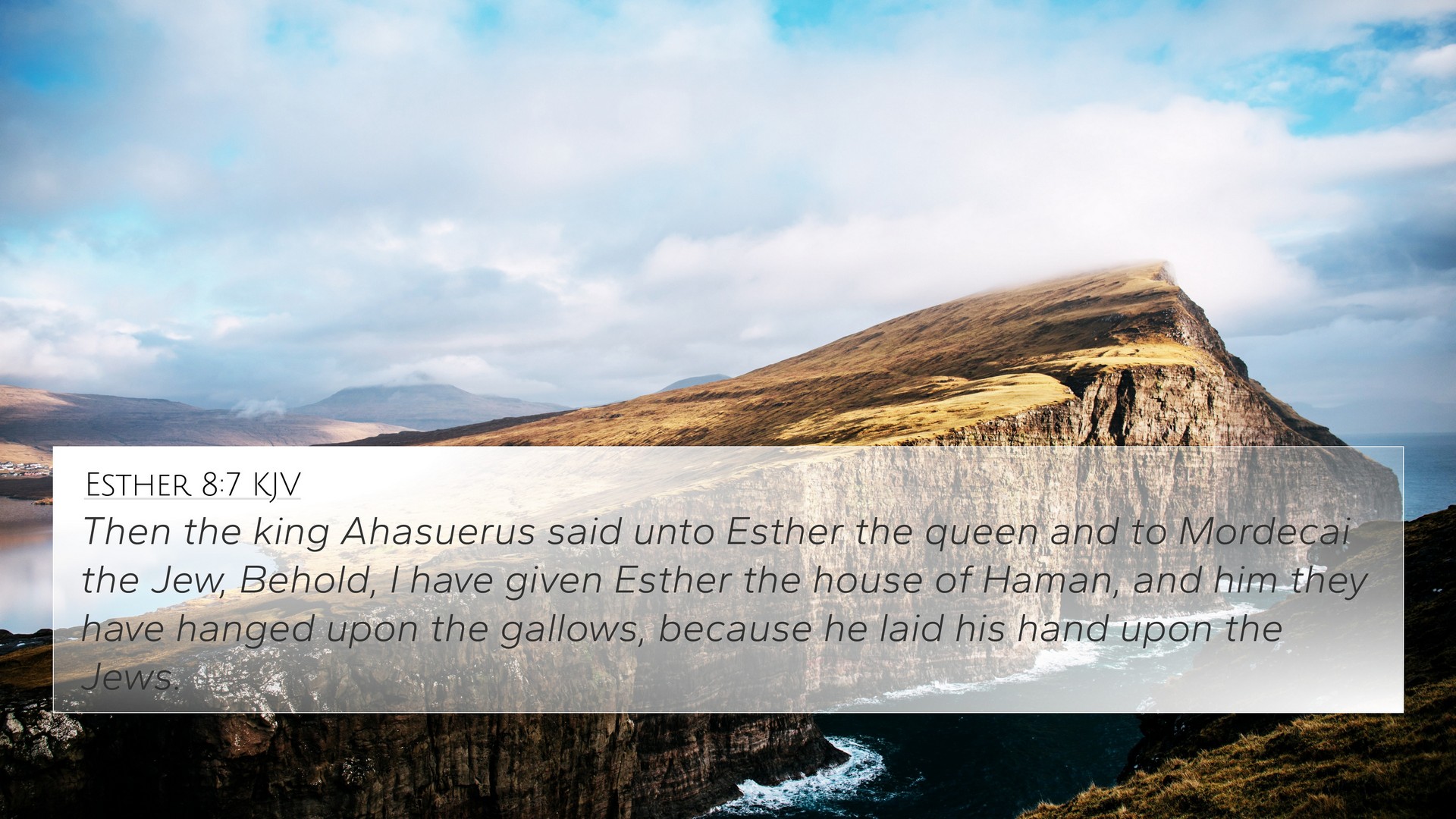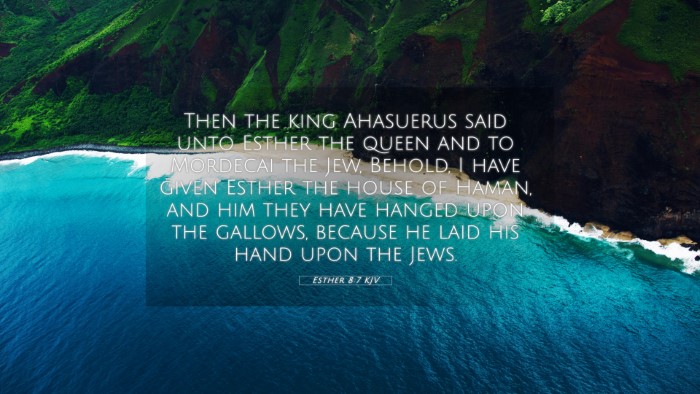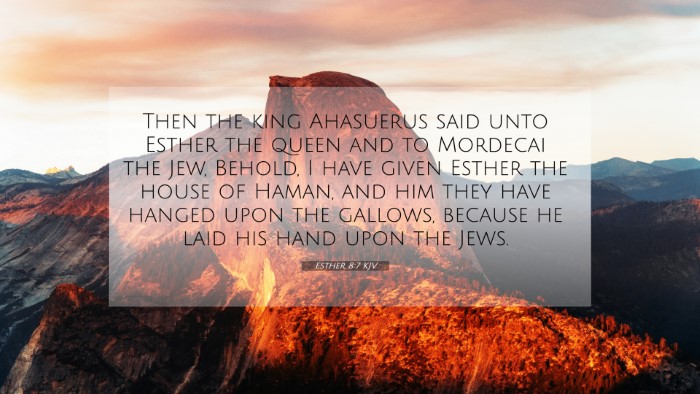Old Testament
Genesis Exodus Leviticus Numbers Deuteronomy Joshua Judges Ruth 1 Samuel 2 Samuel 1 Kings 2 Kings 1 Chronicles 2 Chronicles Ezra Nehemiah Esther Job Psalms Proverbs Ecclesiastes Song of Solomon Isaiah Jeremiah Lamentations Ezekiel Daniel Hosea Joel Amos Obadiah Jonah Micah Nahum Habakkuk Zephaniah Haggai Zechariah MalachiEsther 8:7 Similar Verses
Esther 8:7 Cross References
Then the king Ahasuerus said unto Esther the queen and to Mordecai the Jew, Behold, I have given Esther the house of Haman, and him they have hanged upon the gallows, because he laid his hand upon the Jews.
Uncover the Rich Themes and Topics of This Bible Verse
Listed below are the Bible themes associated with Esther 8:7. We invite you to explore each theme to gain deeper insights into the Scriptures.
Esther 8:7 Cross Reference Verses
This section features a detailed cross-reference designed to enrich your understanding of the Scriptures. Below, you will find carefully selected verses that echo the themes and teachings related to Esther 8:7 KJV. Click on any image to explore detailed analyses of related Bible verses and uncover deeper theological insights.
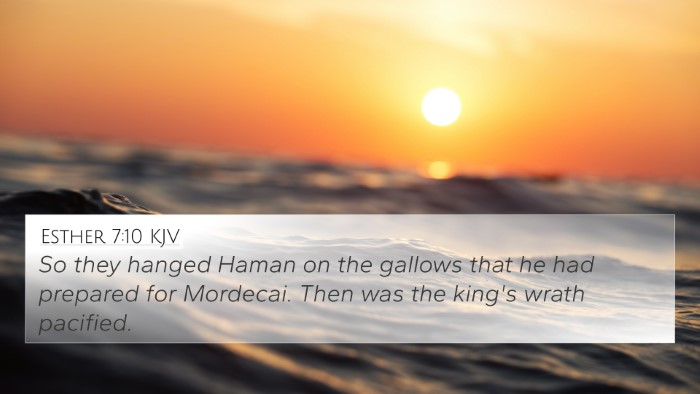
Esther 7:10 (KJV) »
So they hanged Haman on the gallows that he had prepared for Mordecai. Then was the king's wrath pacified.
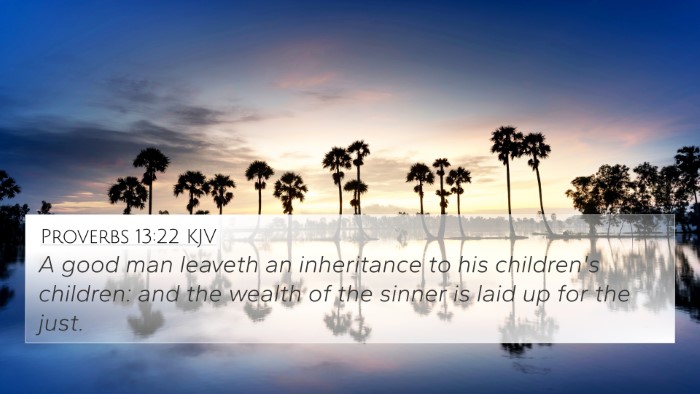
Proverbs 13:22 (KJV) »
A good man leaveth an inheritance to his children's children: and the wealth of the sinner is laid up for the just.
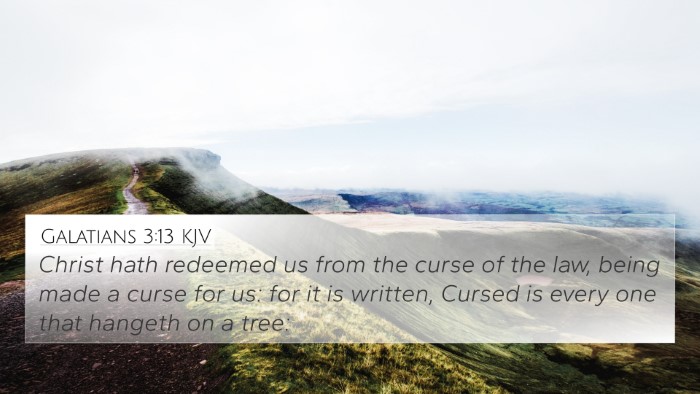
Galatians 3:13 (KJV) »
Christ hath redeemed us from the curse of the law, being made a curse for us: for it is written, Cursed is every one that hangeth on a tree:
Esther 8:7 Verse Analysis and Similar Verses
Meaning and Interpretation of Esther 8:7
Esther 8:7 reads: "Then the king Ahasuerus said unto Esther the queen, and to Mordecai the Jew, Behold, I have given Esther the house of Haman, and him they have hanged upon the gallows, because he laid his hand upon the Jews." This verse occurs within the critical narrative of Esther where the fate of the Jewish people in Persia hangs in the balance.
Contextual Background
This verse reveals a moment in time when King Ahasuerus, upon hearing the plight of the Jews from Esther and Mordecai, officially extends protection to the Jewish people after Haman's evil plot was defeated. This was a pivotal shift illustrating God’s providential care for His people.
Commentary Insights
-
Matthew Henry Commentary
Matthew Henry emphasizes that in this declaration, Ahasuerus reaffirms the sovereignty of Esther and Mordecai following their bravery in exposing Haman's conspiracy. This reflects God's providential guidance and the reversal of fortune often found in Scripture.
-
Adam Clarke Commentary
Adam Clarke notes that the mention of Haman’s house and the declaration of it being given to Esther highlights the dramatic turn of events, ensuring that the destruction planned against the Jews was thwarted. Clarke explores themes of justice and retribution, noting the discomfort of evil leaders meeting their demise due to their malicious designs.
-
Albert Barnes Commentary
Albert Barnes emphasizes the significance of this moment as it illustrates divine justice. He points out that the verse marks a key turning point not just for Mordecai and Esther, but for the entire Jewish nation. Also, he remarks on God’s ability to turn curses into blessings, providing a message of hope and deliverance.
Thematic Connections
The verse's themes can be closely linked to various other scriptures through cross-referencing and comparative analysis:
- Psalm 7:15-16 - Discusses the fate of those who devise evil; paralleling Haman's narrative and his downfall.
- Proverbs 11:21 - "Though hand join in hand, the wicked shall not be unpunished," reinforcing the justice highlighted in Esther 8:7.
- Galatians 6:7 - "For whatsoever a man soweth, that shall he also reap," echoing the principle of divine justice present in Haman's fate.
- Matthew 5:10 - Blessed are those who are persecuted for righteousness' sake; a reminder of the Jewish plight and God's faithfulness.
- Romans 8:31 - "If God be for us, who can be against us?" perfectly encapsulating the security the Jewish people found under God's protection.
- 1 Peter 5:10 - Which assures believers that after they suffer for a while, God will establish them, much like the restoration seen in Esther's narrative.
- Revelation 20:10 - The ultimate fate of the wicked as reflected in Haman's demise, reaffirms the assurance of divine justice.
- Isaiah 54:17 - "No weapon formed against you will prosper," reminiscent of the protection granted to God’s people in Esther's story.
- Job 20:5-7 - Speaking of the triumph of the wicked, conflicting with the destiny of righteous, similar thematic reflections as in Esther.
- Deuteronomy 30:7 - The idea of curses turning to blessings as God's justice prevails echoes through this narrative in Esther.
Cross-Referencing Tools and Techniques
For a deeper understanding of Esther 8:7 and its connections to other Scriptures, utilizing various tools for Bible cross-referencing is essential. Here are a few methods:
- Bible Concordance - A powerful tool for locating specific words and their occurrences across the Bible.
- Cross-reference Bible Study - Engaging in thematic studies that reveal how verses relate to each other.
- Detailed Cross-reference Between Gospels - Drawing parallels between the accounts of Matthew, Mark, Luke, and John regarding similar events and themes.
- Bible Reference Resources - Utilize commentaries and study Bibles that provide extensive cross-references at the bottom of pages.
Conclusion
Esther 8:7 serves not merely as a historical account but as a rich source of theological reflection. By examining parallel scriptures, readers can appreciate not only the nuances of Esther's narrative but also the overarching principles of divine justice, providence, and hope that resonate throughout the Bible.
